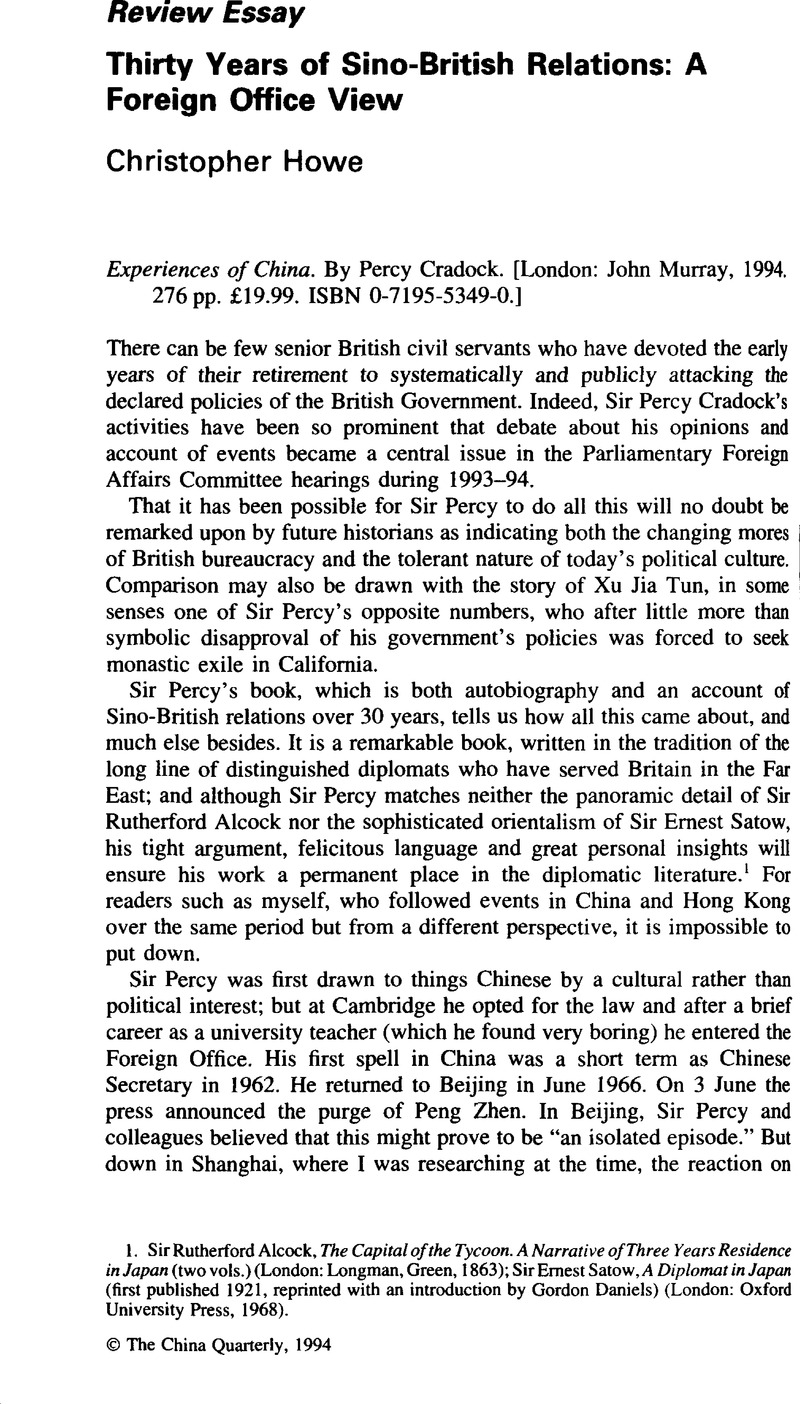No CrossRef data available.
Published online by Cambridge University Press: 12 February 2009

1. Alcock, Sir Rutherford, The Capital of the Tycoon. A Narrative of Three Years Residence in Japan (two vols.) (London: Longman, Green, 1863)Google Scholar; Satow, Sir Ernest, A Diplomat in Japan (first published 1921, reprinted with an introduction by Gordon Daniels) (London: Oxford University Press, 1968).Google Scholar
2. Wills, John E. Jr., Pepper, Guns and Parleys. The Dutch East India Company and China 1622–1681 (Cambridge, MA.: Harvard University Press, 1974).Google Scholar
3. Ingrams, Harold, Hong Kong (London: Her Majesty's Stationery Office, 1952), p. 255.Google Scholar
4. An account of these changes is provided in Hong Kong Briefing, The China Quarterly, No. 95 (September 1983). The sources of the statistics quoted are to be found in my article in that issue.
5. Data quoted from Government of Hong Kong, White Paper on The Development of Senior Secondary and Tertiary Education, October 1978, Appendix 1.
6. Some anxieties about the problems of the status quo had been felt by the Caliaghan administration as early as the 1970s. The specific issue was the lack of an acceptable system of industrial relations in Hong Kong. The problem was that an active labour movement would have been as unwelcome to Beijing as political shift to decolonialization, but the Labour government was pressed to make enquiries on this issue. See Turner, H. A., The Last Colony: But Whose? (Cambridge: Cambridge University Press, 1981).Google Scholar
7. There has been at least one case of an interest group aggrieved by change, appealing to Beijing to intervene to preserve an aspect of the 1984 system. Beijing ignored their requests.
8. At the Foreign Affairs Committee hearing, the then Secretary for Constitutional Affairs, Michael Sze, commented: “I would only add that I find it rather odd for someone like Sir Percy, who is not a Hong Kong belonger and as far as I know has not spent much time living in Hong Kong, to speak with such authority as to what is good and what is not good for people in Hong Kong,” House of Commons, Select Committee on Foreign Affairs, Transcript for 20 January 1994, p. 11.